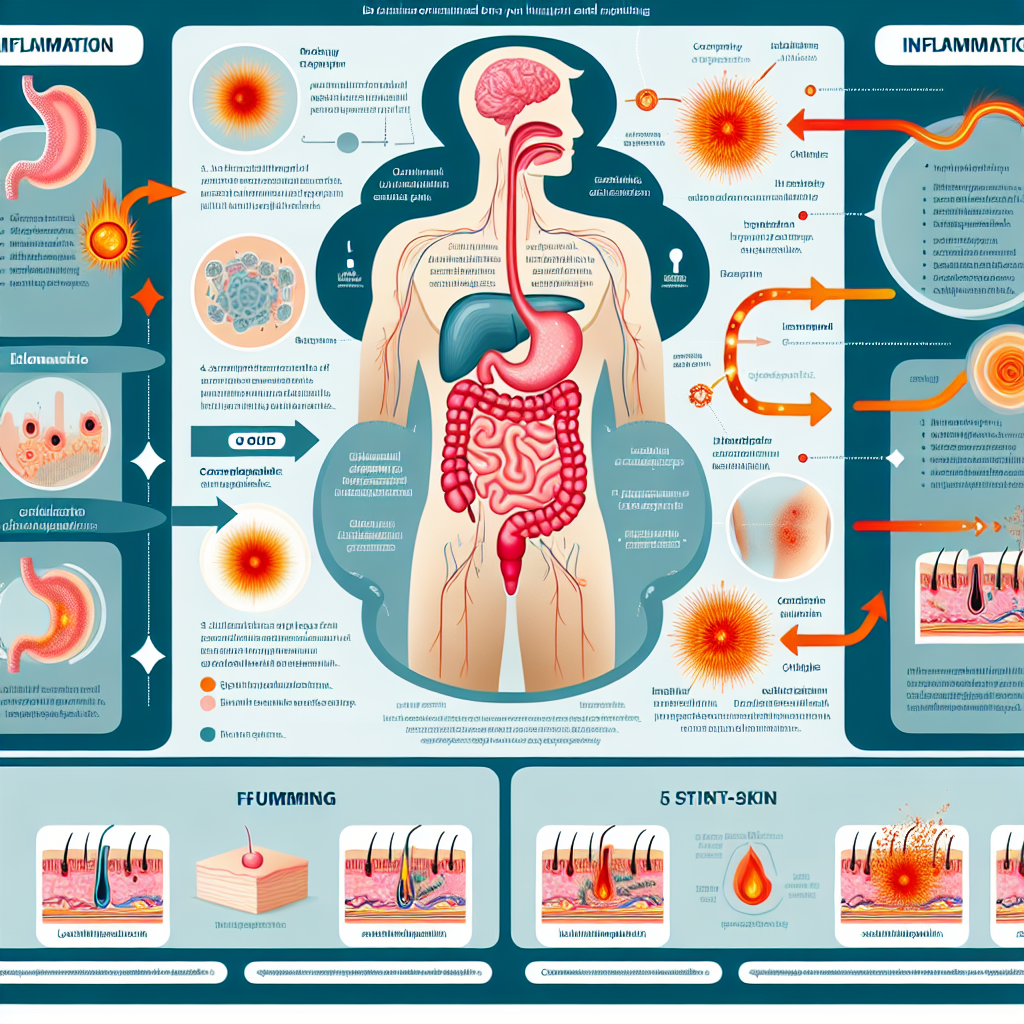The intricate connection between our gut health and the condition of our skin is a rapidly expanding area of research that has garnered significant attention in recent years. The gut microbiome, which is the complex community of microorganisms residing in our digestive system, plays a critical role not only in our digestive health but also impacts our overall well-being, including the health of our skin. This article delves into the mechanisms linking gut health to skin conditions, providing insights into how maintaining a balanced gut microbiome can lead to clearer, healthier skin.
Understanding the Gut-Skin Axis
The gut-skin axis refers to the bidirectional relationship between the gastrointestinal tract and the skin, highlighting how gut health can influence skin health and vice versa. Several studies have suggested that when the balance of the gut microbiome is disrupted, it can lead to skin conditions such as acne, eczema, psoriasis, and rosacea. This disruption, known as dysbiosis, may cause inflammation that extends beyond the gut, affecting the skin and potentially leading to various dermatological issues.
The Role of Inflammation
Inflammation is a key factor in the gut-skin connection. When the gut is compromised, it may become more permeable—a condition often referred to as "leaky gut syndrome." This increased intestinal permeability allows bacteria and toxins to enter the bloodstream, triggering systemic inflammation. Chronic inflammation can weaken the skin’s natural barrier, making it more susceptible to issues such as dryness, irritation, and infection.
The Impact of Diet on Gut and Skin Health
Diet plays a pivotal role in maintaining the equilibrium of the gut microbiome. Foods that are high in sugar, saturated fats, and processed ingredients can negatively affect gut health, leading to dysbiosis and skin problems. Conversely, a diet rich in fiber, antioxidants, and nutrients can promote a healthy gut microbiome, which in turn can enhance skin health. It is essential to understand the role of diet in managing skin conditions, as certain foods can either exacerbate or alleviate skin issues.
Probiotics and Prebiotics: Allies of the Skin
Probiotics are live beneficial bacteria that, when ingested in adequate amounts, can help restore the natural balance of the gut microbiome. Prebiotics, on the other hand, are non-digestible fibers that serve as food for probiotics. Together, they can strengthen the gut barrier, reduce inflammation, and improve skin health.
Probiotic-Rich Foods
Incorporating probiotic-rich foods into your diet, such as yogurt, kefir, sauerkraut, and other fermented foods, can introduce beneficial bacteria to your gut. These foods not only support digestive health but can also have a positive effect on the skin by modulating the immune response and reducing inflammation.
Prebiotic Foods
Prebiotic foods include garlic, onions, asparagus, bananas, and whole grains. These foods help to nourish the good bacteria in the gut, promoting a balanced microbiome that supports skin health.
Identifying and Addressing Gut Problems
Recognizing the signs of gut issues is crucial for both digestive and skin health. Symptoms like bloating, gas, constipation, or diarrhea can indicate an imbalance in the gut microbiome. It’s important to identify the signs of leaky gut syndrome and other digestive disorders, as they can be underlying contributors to skin conditions.
Strategies for Gut Health Improvement
Improving gut health involves a multi-faceted approach, including dietary changes, stress management, and possibly the use of supplements. Avoiding trigger foods, increasing the intake of fiber and nutrient-dense foods, and incorporating stress-reduction techniques such as meditation or yoga can all contribute to a healthier gut and, in turn, better skin health.
External Resources for Further Reading
For those interested in exploring this topic further, there are several niche resources that provide valuable information on the relationship between gut health and skin conditions:
- An in-depth study published in the Journal of Clinical Gastroenterology exploring the role of the gut microbiome in systemic diseases, including skin conditions.
- A report by the American Academy of Dermatology that discusses the connection between diet, gut health, and acne.
- Research findings from the National Eczema Association on how probiotics may benefit individuals with eczema.
Conclusion
The relationship between gut health and skin conditions is a complex and dynamic one, influenced by factors such as diet, lifestyle, and the balance of the microbiome. By fostering a healthy gut through mindful dietary choices, probiotic and prebiotic supplementation, and overall wellness practices, we can potentially alleviate and prevent a range of skin issues. As research continues to uncover the depths of the gut-skin connection, it becomes increasingly clear that the road to radiant skin may very well begin in the gut.



